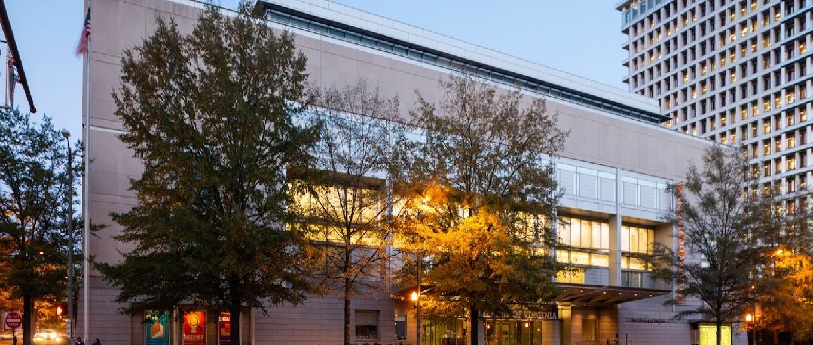Angela L. Flagg, APR, Chief Communications Officer
804.692.3653, angela.flagg@lva.virginia.gov
Library of Virginia Receives Notification of NEH Grants Termination
RICHMOND, VIRGINIA – The Library of Virginia has been notified by the National Endowment for the
Humanities (NEH) that three federal grants have been terminated, effective April 3, 2025. The grants were
issued to digitize historical Virginia imprint newspapers to make them accessible to researchers and the public,
to digitize WWII separation notices to provide important historical and genealogical information about
veterans that served during the war, and to develop a new exhibition aimed at showcasing an important part
of the history of Richmond’s Jackson Ward neighborhood.
The awards were obtained through the Library of Virginia Foundation, which raises philanthropic contributions
in support of the Library and its work. While the Library has received partial reimbursement on expenditures
for the three projects, it is evaluating how best to move forward and what additional private support is
needed to sustain these and other similar initiatives.
“We are truly saddened to learn of this unfortunate decision that will have significant impacts on three very
important historical projects,” said Librarian of Virginia Dennis T. Clark. “NEH grants have been very valuable in
helping us to ensure that Virginians have access to records that reflect pivotal moments in history and to
present important stories that are part of Richmond’s and the nation’s history. Without this support, we are
facing a daunting challenge of finding alternate resources to fund continuation of these initiatives.”
The Virginia Newspaper Project
NEH issued a $235,692 federal grant to the Library Foundation in August for a two-year Library project to
digitize 100,000 pages of historical Virginia imprint newspapers dating from 1860 to 1963. The project focuses
on expanding the African American and German language Virginia newspapers already available through the
Library of Congress’s Chronicling America, the national newspaper database, as well as a selection of 19thcentury agricultural newspapers and weeklies published in Virginia's Eastern Shore and Southwest. This is the
eighth NEH grant for the Library’s Virginia Newspaper Program, an original partner of the National Digital
Newspaper Program.
House to Highway: Reclaiming the Hidden History of Jackson Ward Project
The Library Foundation was awarded an NEH federal grant of $282,975 in September for the Library to
develop the “House to Highway: Reclaiming the Hidden History of Jackson Ward” exhibition, in partnership
with The JXN Project, a historic preservation nonprofit organization. The eight-month exhibition, set to open in
July, will explore the historic neighborhood that was once the center of Richmond’s Black community through
the lens of the Skipwith-Roper family. The exhibition will tell the story of Abraham Peyton Skipwith – one of
the area’s first known Black homeowners – and his descendants, covering a period from 1767 through the
1940s, when eminent domain displaced many residents and businesses of Jackson Ward for the construction
of the Richmond-Petersburg Turnpike. It will be presented at the Library of Virginia for eight months starting in
July, and as a long-term exhibition at JXN’s reconstruction site for the Skipwith-Roper Cottage in Jackson
Ward, which is expected to open as part of the ward’s anniversary week in April 2026. A traveling version of
the exhibition will also be available, and the Library and JXN will collaborate on educational and public
programming related to the exhibition content.
War, Remembrance, and the Power of Records: Digitizing the Library of Virginia's WWII Separation Notices
Project
The Library Foundation received a $315,000 NEH grant in 2022 for a three-year Library project to digitize
250,000 separation notices of WWII-era Virginia service members and make them accessible through
community outreach transcription and online searchability. This significant three-year initiative focuses on
digitizing the vast collection and then working with a wide array of community groups, family members, school
groups and educators, and other individuals to uncover details and fill gaps in the stories of these individuals,
potentially making connections and discoveries about the people of this era of history.

